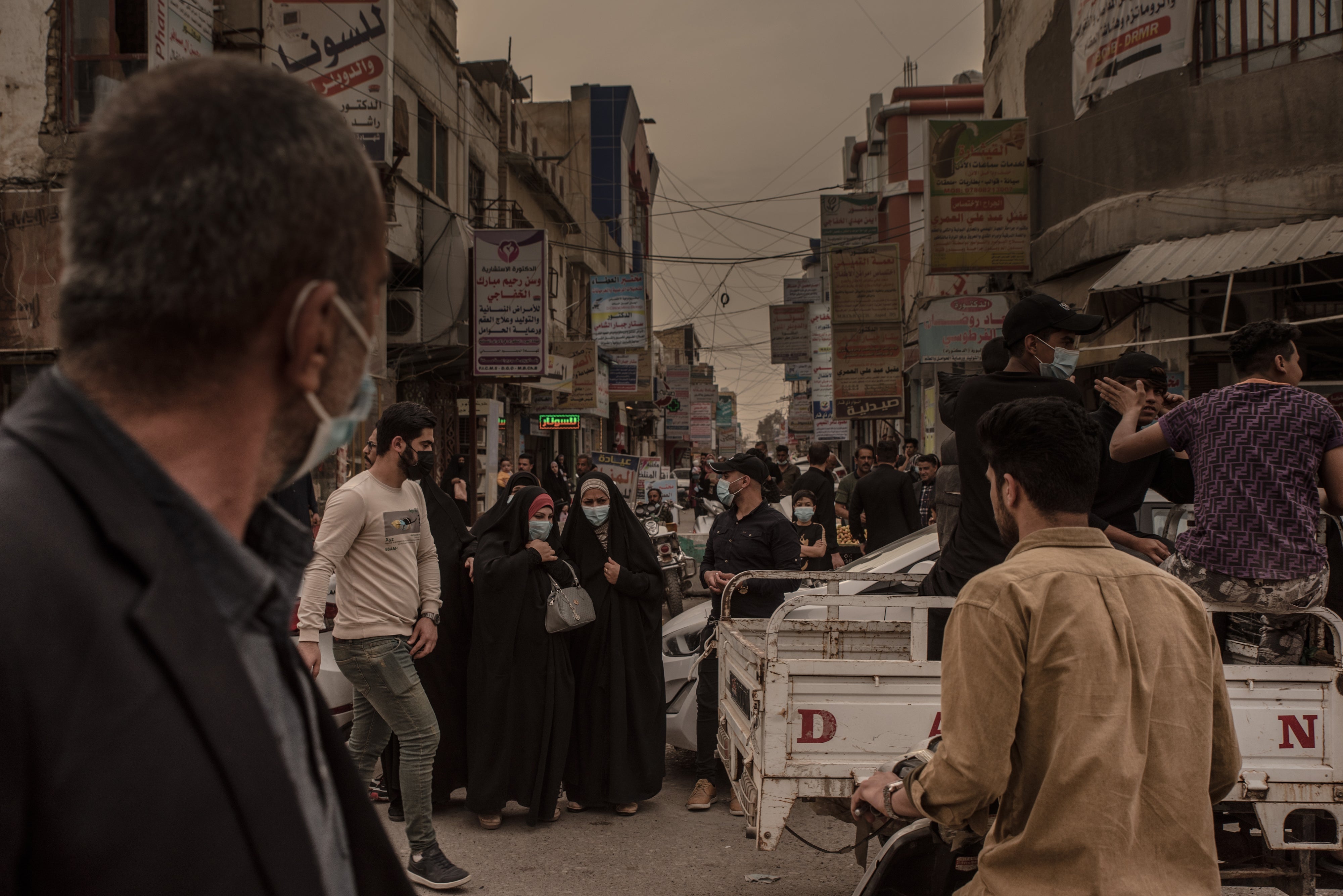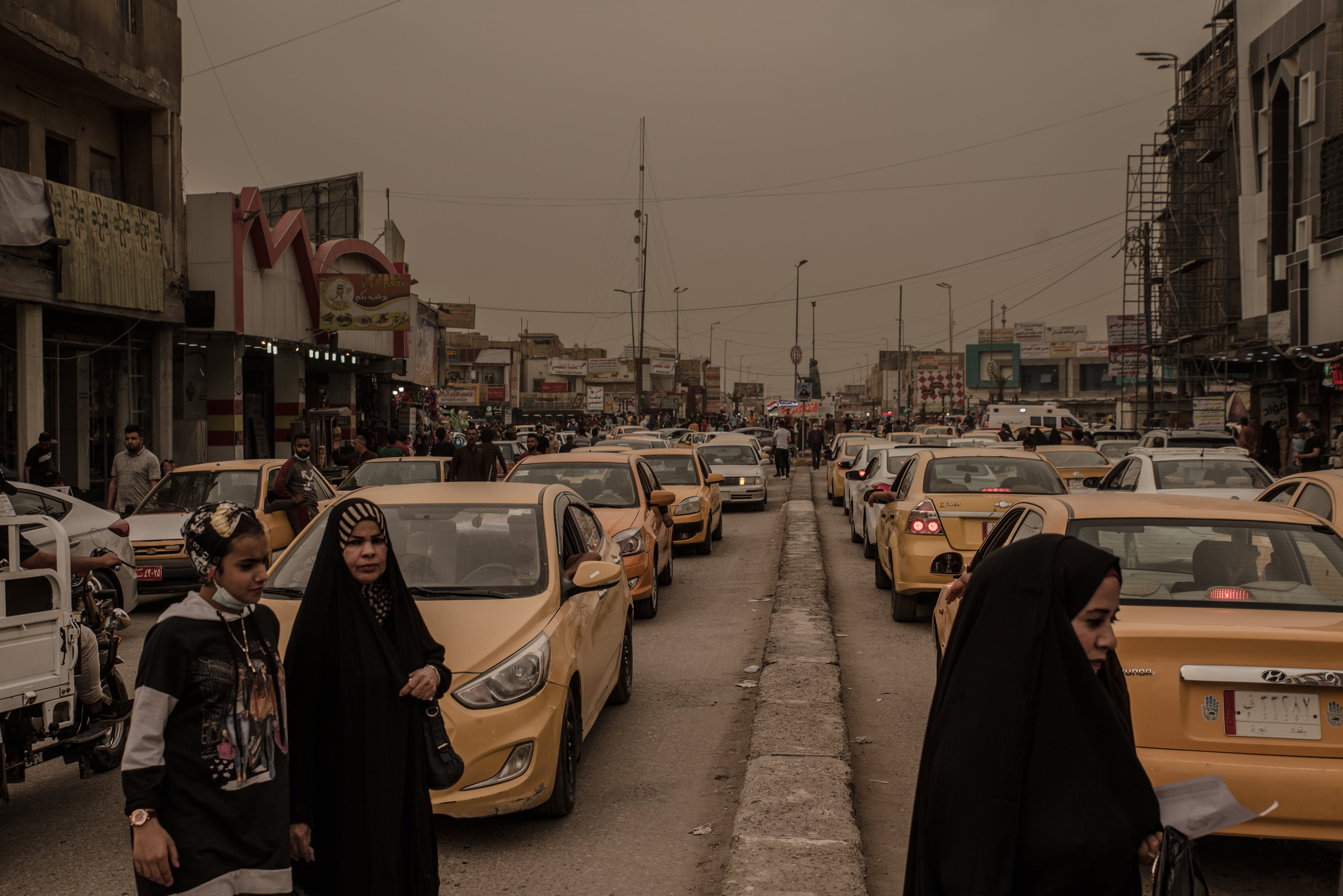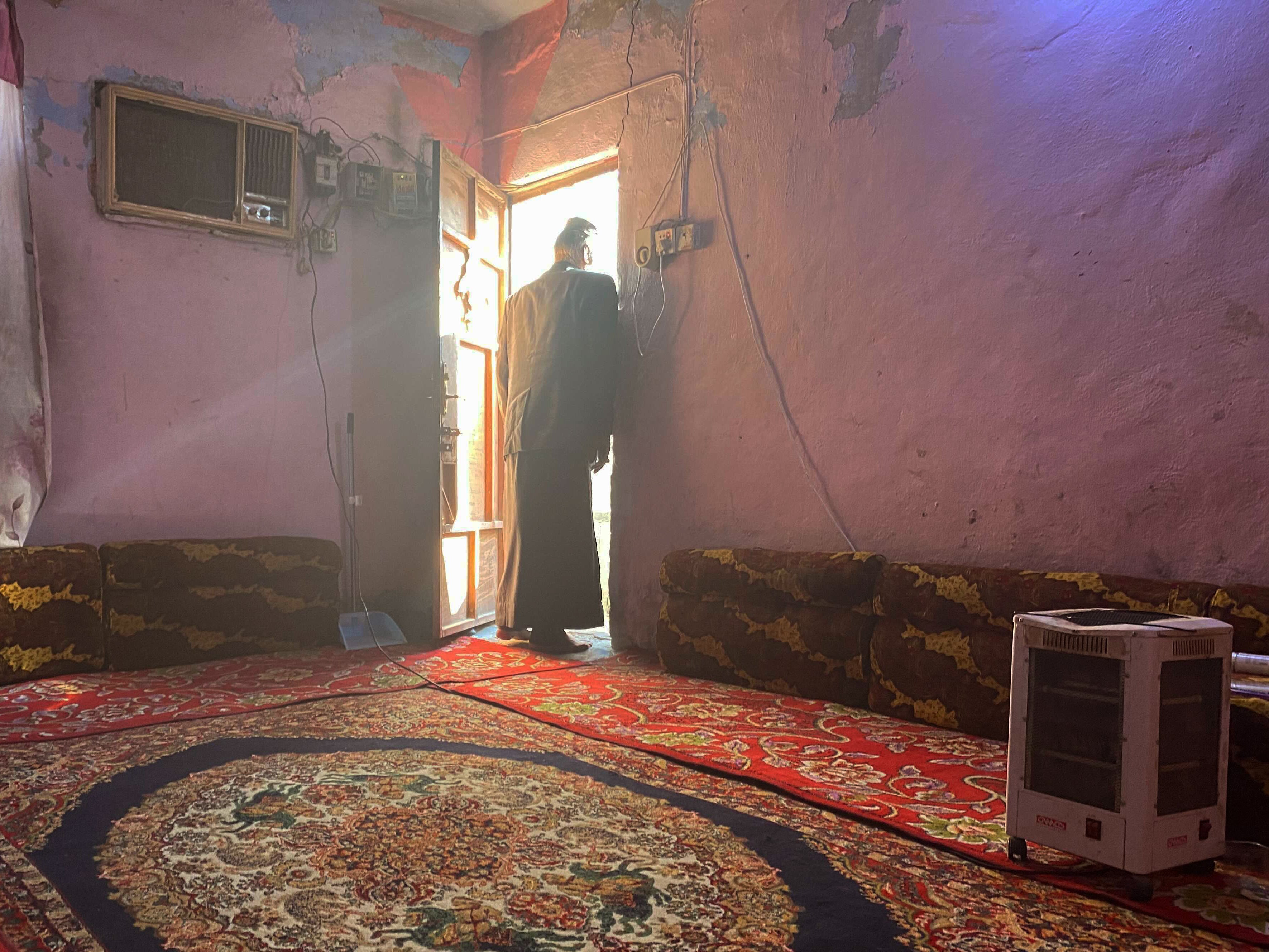‘This was about our future. This was about Iraq’: Iraq’s militias are more than just Iranian proxies
While some officials have viewed the militias as little more than proxies in a campaign to extend Iran’s regional influence, these Iraqi groups are often deeply embedded in the fabric of Iraqi society, writes Louisa Loveluck

Your support helps us to tell the story
From reproductive rights to climate change to Big Tech, The Independent is on the ground when the story is developing. Whether it's investigating the financials of Elon Musk's pro-Trump PAC or producing our latest documentary, 'The A Word', which shines a light on the American women fighting for reproductive rights, we know how important it is to parse out the facts from the messaging.
At such a critical moment in US history, we need reporters on the ground. Your donation allows us to keep sending journalists to speak to both sides of the story.
The Independent is trusted by Americans across the entire political spectrum. And unlike many other quality news outlets, we choose not to lock Americans out of our reporting and analysis with paywalls. We believe quality journalism should be available to everyone, paid for by those who can afford it.
Your support makes all the difference.When the call came to fight the Islamic State, the lines of volunteers in Nasiriyah, Iraq, stretched for blocks. Friends pooled money to pay for the ride to militia recruitment offices. Young men were already scrambling on to buses bound for the front lines.
As the Iraqi army melted away, it fell often to the mostly Shiite Muslim militias to go back and rout the Sunni extremists of the Islamic State. For many in the city, it felt like a battle for Iraq’s soul.
Former militiaman Thamer al-Safi says: “Back then, it was just about one thing,” recalling the battles of 2014 in which two of his brothers died. “This was about our future. This was about Iraq.”
That mass mobilisation would have far-reaching consequences, embedding the victorious militias in the upper echelons of power in Iraq and setting them on a course to confront the United States. Backed in many cases by Iran, they have escalated their rocket attacks on US military positions in recent years, threatening to ignite a wider US war with Iran, even now as Washington and Tehran talk about restoring diplomatic contacts.
Read More:
But while some officials have viewed the militias as little more than proxies in a campaign to extend Iran’s regional influence, these groups are often deeply embedded in the fabric of Iraqi society, having emerged out of its own turbulent history.
Some have roots that date back decades. Their official network, known as the Popular Mobilisation Forces, or PMF, was born in 2014 with widespread support across Iraq’s Shiite south, after tens of thousands answered calls by Iraq’s prime minister and Grand Ayatollah Ali Sistani, Iraq’s highest Shiite religious authority, to fight the Islamic State militants.
And now, as some Iraqis are souring on these Iran-backed militias, the grievances extend well beyond Tehran’s influence to include concerns about what these groups have become and the promises they have broken.
Today, the militias are economic powerhouses and enforcers of the political regime. They are marbled throughout the country’s ruling institutions and when mass protests erupted against the government in October 2019, Iran-backed armed groups quashed them with deadly force. Human rights groups have frequently accused them of abuses.
Abdullah, 58, a former militia volunteer who like others interviewed spoke on the condition that his last name be withheld out of fear of retaliation, says: “It made me regret that I allowed my brother to fight. I pray every day to live long enough to look out for his children.” An Islamic State sniper killed his brother in 2014, he says.
In the corner of the family home, Abdullah’s nephew sits listening, tense knees pulled to his chest as he stares at the ground.
In mostly Shiite Nasiriyah, the faces of slain recruits such as Abdullah’s brother line the streets on faded billboards, ghosts of the past who speak to how much this run-down city sacrificed to defeat the Islamic State. The faces of such “martyrs” – a term suggesting they were killed in the line of religious duty – feature prominently in militia recruitment campaigns.
The last time I went into their offices, I just threw all our paperwork on their desk and told them I wished I had never sent my son as a martyr
In compensation for their deaths, the families of martyrs have traditionally received land and monthly payments from the umbrella commission that manages all the PMF’s affairs. But for some, often poorer families, those benefits are now drying up, feeding resentment at militia groups they once relied upon for a social safety net.
Across Nasiriyah today, as well as in cities throughout the south, some families of the dead are left picking up the pieces, celebrated in public for their sons’ bravery but feeling abandoned, sometimes betrayed, by the militias that they fought and died for.
Sattar, 59, sitting on threadbare red cushions in his family home, says: “They promised us land. They promised us compensation. The last time I went into their offices, I just threw all our paperwork on their desk and told them I wished I had never sent my son as a martyr.”
On the wall hung a weathered photograph of his son Mushtaq, who was 18 when he was grievously wounded fighting with the Iran-linked Badr Organisation in 2015. In his last call to his family, the young soccer fan had said he was going out on patrol, his father recalls. The brigade was attacked. Mushtaq did not survive the journey to a hospital.
Until last year, the family says, they had received a monthly sum of 900,000 Iraqi dinars (£447) from Badr. They have received no explanation for why the payment has stopped.
Sattar says: “They say it’ll return, but it hasn’t.”

Although Iraq’s militia network includes groups from most of the country’s religious sects, the Shiite militias dominate, and many of them are supported by Iran.
Prominent militias such as Kataib Hezbollah, Asaib Ahl al-Haq, Harakat Hezbollah al-Nujaba and Badr have been a source of much concern for US officials, who have accused several of them in recent months of using front groups to launch rocket attacks on US-linked military and diplomatic facilities. These attacks have killed Americans and other foreign personnel, as well as Iraqi citizens, and on several occasions have drawn US strikes in retaliation, killing militiamen.
The Trump’s administration’s assassination of top Iranian commander Qasem Soleimani and PMF militia leader Abu Mahdi al-Muhandis in Baghdad early last year also heightened tensions between the US and Iran on Iraqi soil.
With some militias saying they are determined to oust the US military from Iraq, there remain risks of further deaths and an escalation in violence between the US and Iran (officials from the PMF commission did not respond to repeated requests for comment).
Groups such as Badr, founded in 1982 from exile in Iran, were a factor in Iraqi politics long before this latest conflict. And they were well placed to recruit fighters on the baking summer days when Islamic State militants sacked major Iraqi cities such as Mosul and Tikrit in the north. Badr had an extensive network of offices and many recruits already had links to the group.
But others, such as Mushtaq, joined because they were alarmed about the Islamic State and fired up to fight – recruitment videos were urging Shiites to fight for their holy shrines and their country – and Badr’s office was the closest.
Sattar says: “His friends were collecting money and Badr was the closest office, so he agreed to register there. He said they took them without training and immediately to the front line.”
The PMF uses money from Iraq’s federal budget to pay the families of the war dead but there is little accountability for where that money goes. Decisions about which groups are funded and by how much are made by a committee of senior militia leaders outside government oversight, according to a research paper by the Chatham House think tank.

The national budget allocates roughly $68m (£49m) for the purchase of land for martyr families but only 3,500 plots have been allocated to relatives of slain militiamen since 2014, according to Iraq’s Martyrs Foundation.
Some Iraqi families say they believe their compensation was cut off because they were no longer useful to the militias. Others say they had received no explanation.
Officials from the Martyrs Foundation, involved in the allocation of payments, say that they are unaware of any problems but suggest that bureaucratic holdups may be to blame.
Kifa Haider, a spokesman for the foundation, says: “Perhaps people don’t understand their own rights, or perhaps there are problems in the bureaucracy. With the martyrs of the PMF we have no problem because all the procedures to pay them have been followed.”
In a small house on Nasiriyah’s outskirts, built on land allocated as compensation for martyr families, hangs the image of another slain fighter. His face also smiles out from a plaque expressing appreciation for his sacrifice. He is dressed in green fatigues and pictured alongside one of Iraq’s holy Shiite shrines.
His father, Emad, says he had argued with Ali over his decision to shut down his thriving electronics business to join Harakat Hezbollah al-Nujaba, which recruited locally.
Emad recalls: “I told him that Iraq doesn’t deserve you to die for it. All this country will ask of you are duties – it won’t give you your rights. But he said, ‘No, I want to defend my country’.” Ali, in his early 20s, was killed in 2016 as he tried to defuse an improvised explosive device in the shrine city of Samarra.
The land where they live is barren and disconnected from the city’s sewerage network. When the sun sinks, it reflects off the stagnant water flooding the track to their house.
Read More:
Emad says: “There’s frustration in general among many families like us.”
Nodding, Ali’s brother Hussein says that he had joined the anti-government protests in his own attempt to save Iraq. Hussein says: “My brother joined the fighting for the same reason I joined the protests. We care about our country. He would never have joined the group if he understood what would happen later.”
© The Washington Post
Join our commenting forum
Join thought-provoking conversations, follow other Independent readers and see their replies
Comments